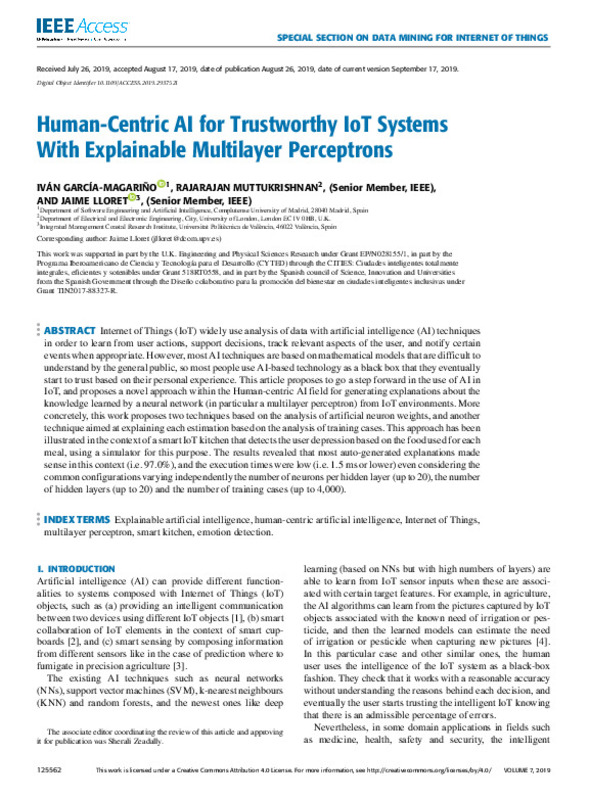JavaScript is disabled for your browser. Some features of this site may not work without it.
Buscar en RiuNet
Listar
Mi cuenta
Estadísticas
Ayuda RiuNet
Admin. UPV
Human-Centric AI for Trustworthy IoT Systems With Explainable Multilayer Perceptrons
Mostrar el registro completo del ítem
García-Magariño, I.; Muttukrishnan, R.; Lloret, J. (2019). Human-Centric AI for Trustworthy IoT Systems With Explainable Multilayer Perceptrons. IEEE Access. 7:125562-125574. https://doi.org/10.1109/ACCESS.2019.2937521
Por favor, use este identificador para citar o enlazar este ítem: http://hdl.handle.net/10251/188303
Ficheros en el ítem
Metadatos del ítem
| Título: | Human-Centric AI for Trustworthy IoT Systems With Explainable Multilayer Perceptrons | |
| Autor: | García-Magariño, Iván Muttukrishnan, Rajarajan | |
| Entidad UPV: |
|
|
| Fecha difusión: |
|
|
| Resumen: |
[EN] Internet of Things (IoT) widely use analysis of data with artificial intelligence (AI) techniques in order to learn from user actions, support decisions, track relevant aspects of the user, and notify certain events ...[+]
|
|
| Palabras clave: |
|
|
| Derechos de uso: | Reconocimiento (by) | |
| Fuente: |
|
|
| DOI: |
|
|
| Editorial: |
|
|
| Versión del editor: | https://doi.org/10.1109/ACCESS.2019.2937521 | |
| Código del Proyecto: |
|
|
| Agradecimientos: |
This work was supported in part by the U.K. Engineering and Physical Sciences Research under Grant EP/N028155/1, in part by the Programa Iberoamericano de Ciencia y Tecnologia para el Desarrollo (CYTED) through the CITIES: ...[+]
|
|
| Tipo: |
|









